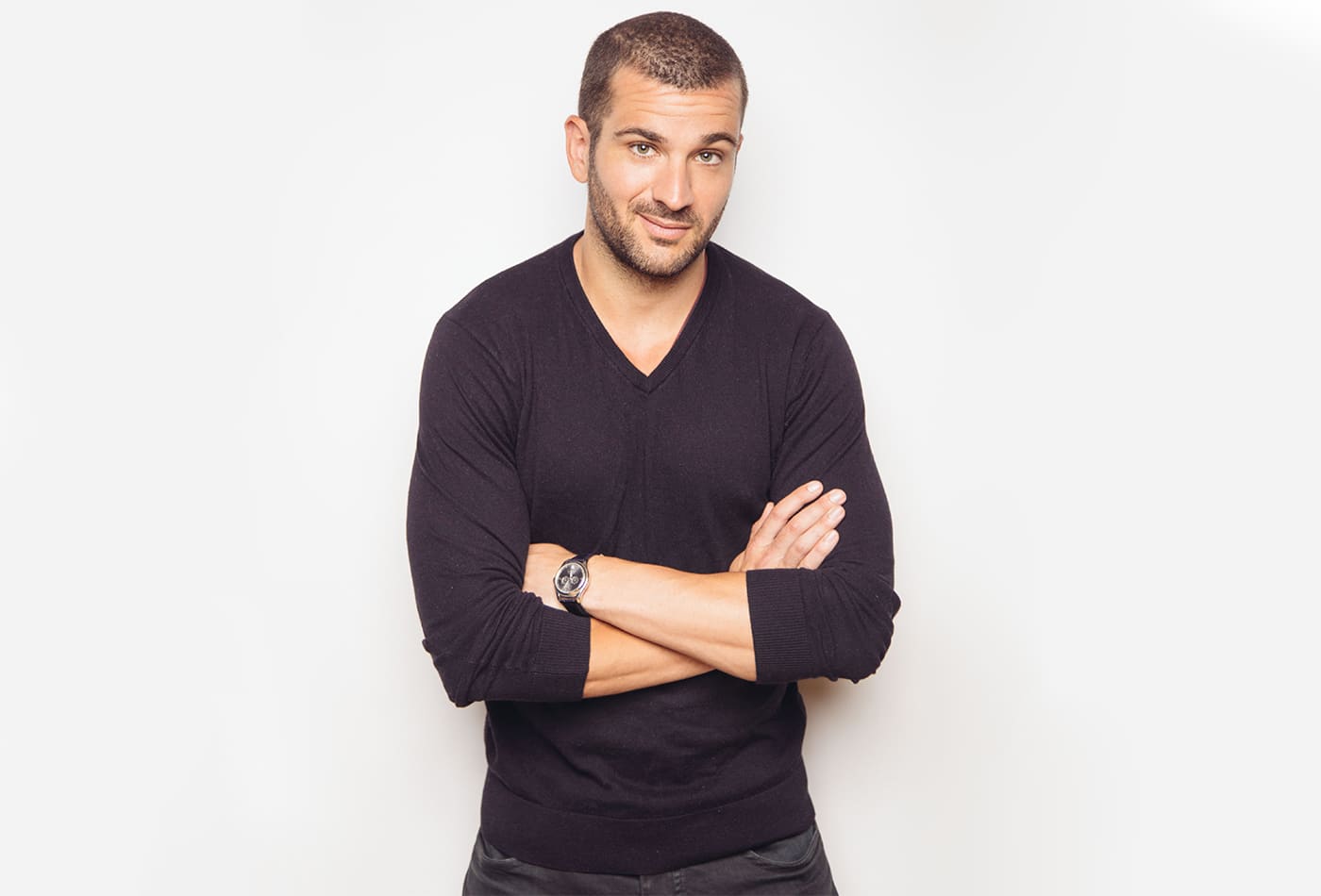I quit my high-paying finance job to start a side hustle. Now it's making millions—here's how I did it

My kitchen table looked like a scene from "Breaking Bad."
I was sorting, mixing and matching pills and powders — refining my nutritional supplement regimen on a quest for self-optimization. I did plenty of research and took courses in health and nutrition, which helped me differentiate products that are worth their salt from ones that are just snake oil.
Soon, friends who saw my lab of makeshift supplements would say, "Man, I wish someone could do that for me." And so I did. Meanwhile, I was still grinding at my high-paying, full-time job in investment banking, which often required 80-hour workweeks.
I started my career as a banker at Goldman Sachs and, in 2008, moved on to Caxton-Iseman (now CI Capital Partners). I had always been interested in wellness and nutrition, but my desire to gain every competitive advantage for my job in finance — including getting better sleep, staying more focused and shaking off stress — was leading me down an entirely new career path.
My passion project took on a number of iterations and forms. In 2011, it turned into a small-scale, at-home operation. This gave me the confidence to finally leave my finance job and officially launch WellPath, which makes customized nutritional products, in 2014.
Exploring a new opportunity while still having financial security from my full-time job was enormously fulfilling.
In addition to not having to give up one for the other, I was able to dip my toes into the entrepreneurial waters. The skills I developed in finance also served me well in turning my hobby into a business.
Balancing a full-time job and passion project
According to a 2019 report from Bankrate, Americans spend an average of 12 hours per week working on projects related to their side hustle, and earn an average of $1,122 per month.
That can be time-consuming for those who also juggle a full-time job. But it's not a bad thing; working on things you enjoy can be good for your mental health. In fact, 27% of the 2,550 adults surveyed said they're more passionate about their side gig than their full-time job.
Here's how I was able to make money off my side hobby without having to immediately compromise my primary career in the process:
1. I didn't let my passion project take over my life.
While I was testing the waters of entrepreneurship, I was first and foremost working my butt off in the world of finance.
The nutrition stuff was for fun, but letting my hobby impact the quality of the work I did during the day would have tanked my career. If you're embarking on a side project, make sure that it doesn't detract — in performance or in perception — from your current job.
Also, to ensure you're not sabotaging your career, investigate your company's policy on side projects: Some don't allow them, while others actively encourage them.
2. I built in structure and accountability.
I didn't monetize WellPath until after I left the world of finance.
Before taking that leap, I made sure there was enough opportunity to turn what was only a hobby into a profitable business. I iterated possible services until I hit on a real pain point that I would be able to subsequently develop and test solutions for.
If you decide that your hobby is worth exploring as a business venture, build a schedule and allocate your time. Hold yourself accountable by sharing your timetable with trusted confidants in your immediate inner circle. The social pressure of delivering on your word can be a powerful motivator.
3. I found the right market for my service.
As interested as I was in personalized nutritional supplements, I knew that not everyone felt the same. That's why I did rigorous research and conducted several surveys to find the right market for my services.
Your milestones will be different depending on what your hobby is, but it's important to identify and nail them down early; understand the biggest pain points of your target consumer base and explore how your idea can solve them.
Then, test those ideas on a small group of paying customers to discover the market's likely reaction.
4. I tried...and failed.
To keep pushing forward, I had to get comfortable with failure. The faster you can plow through and learn from your mistakes, the sooner you can understand whether your side project might ultimately be the kernel of a thriving business.
Pursuing your interests outside of work isn't always about building up a side hustle. You also build skills that positively impact your growth in your current career — often in ways that wouldn't be possible in your primary job.
5. I didn't quit.
Today, about 80% of my working hours are spent building WellPath, which has already generated millions in revenue. (The rest of my time is spent working on DojoMojo, a marketing platform company I co-founded in 2016.)
Last year, WellPath sold more than 100,000 individual products to consumers across the US. We're currently on pace to quadruple that number — and our revenue — by the end of this year.
Getting WellPath up and running wasn't easy. There were several times when I wanted to quit, but didn't. I know that continuing to grow the success of my business won't get any easier, but there's nothing better than seeing all your hard work pay off.
Colin Darretta is the founder of WellPath and co-founder of DojoMojo. Formerly, he worked as an investment banker at Goldman Sachs and Caxton-Iseman (now CI Capital Partners).
Like this story? Subscribe to CNBC Make It on YouTube!
Don't miss:
Read More
No comments